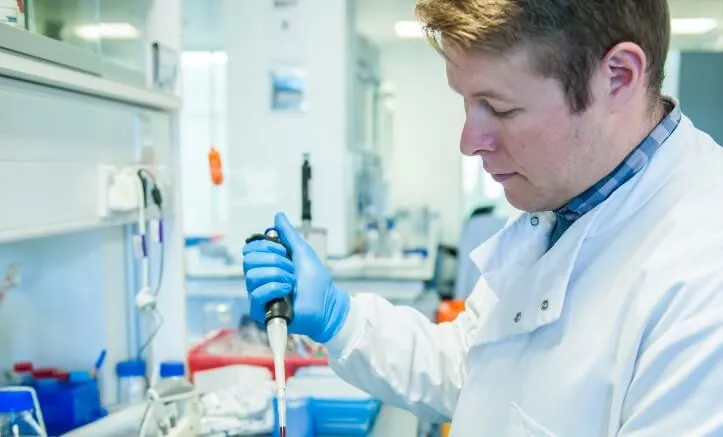
Our researchers have found a way to activate a fuel gauge in the brain that could help in the development of new treatments to prevent low blood sugars.
Drs Craig Beall and Ana Cruz at the University of Exeter ran experiments to investigate the workings of new drug. They also looked at its potential to help people with diabetes avoid hypos.
Hypos happen when blood sugar levels drop too low. Everyone with type 1 diabetes experiences them, along with many people with type 2 who use insulin.
After experiencing lots of hypos some people can also lose the ability to sense when their blood sugars are low. This is called hypo unawareness and it can extremely frightening and dangerous. We urgently need new treatments that help to prevent hypos and restore hypo awareness.
Switching on the brain-pancreas link
Dr Beall has been studying an energy sensing molecule, called AMPK. AMPK switches on when our body’s fuel levels are low, like in a hypo. It helps us to conserve fuel and to generate new energy, by making us feel hungry and breaking down fat stores.
The researchers ran experiments on specialised glucose-sensing brain cells grown in the lab. They found the new drug, called R481, can activate AMPK – our brain's fuel gauge. They then found that in rats, the drug boosts the body’s natural hormonal defence against hypos, by helping the pancreas to release more glucagon. Glucagon is a hormone that raises blood sugar.
Dr Craig Beall, Diabetes UK funded researcher, said:
“Our findings suggest that switching on the brain fuel gauge we’ve identified could be useful for preventing hypoglycaemia. In the long term, our aim is to create a pill that could be swallowed before bed, to prevent night time hypos. This is just the first step in a long road. We hope one day we may be able to give some peace of mind to people with diabetes and parents of children with diabetes that they won’t have a bad night time hypo.”
Dr Lucy Chambers, our Head of Research Communications, said:
“This early stage research funded by Diabetes UK has uncovered important links between the brain and the pancreas. This could lead to new treatments to help people with diabetes avoid hypos, or bring back their ability to recognise signs of low blood sugars.
“Hypos and hypo unawareness can be dangerous and debilitating, and can have a huge impact on the daily lives of people living with all types of diabetes. New treatments for treating hypos, or hypo unawareness would make living with diabetes much easier. This will reduce anxieties and, crucially, protect people from the serious consequences that hypos can have.”
